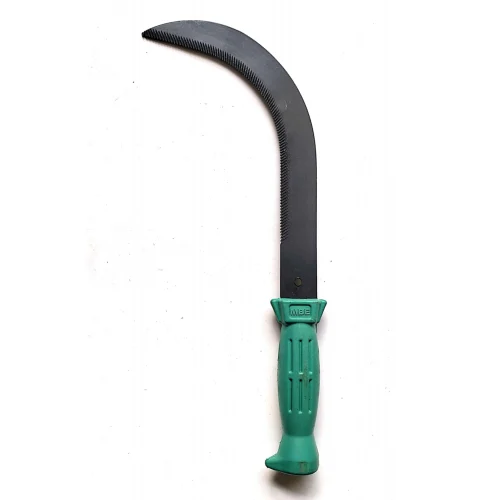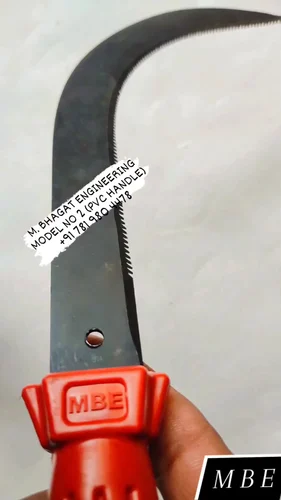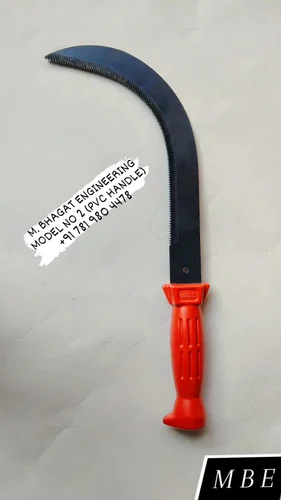11inch Carbon Steel Garden Sickles
₹23.0
| Usage/Application | Agriculture |
| Blade Material | Carbon Steel |
| Model Name/Number | 5 |
| Material | PVC (Handle) |
| Size | 11 inch ( Length ) |
| Brand | MBE |
| Blade Thickness | 1.6mm |
- Description
- Additional information
- Reviews (0)
- Q & A
- Sustainability Remark
- More Offers
- Store Policies
- Inquiries
| brands | MBE |
|---|
You must be logged in to post a review.
Q & A
Harvest management tools, when used effectively, can contribute to sustainability in agriculture by optimizing crop harvesting practices. Here are some ways in which harvest management tools promote sustainability:
Resource efficiency: Harvest management tools help farmers determine the optimal time for harvesting crops based on factors such as crop maturity, weather conditions, and market demand. By harvesting at the right time, farmers can minimize yield losses due to over-ripening or weather-related damage, thus reducing waste and maximizing resource efficiency.
Quality preservation: Harvest management tools assist in monitoring and controlling various parameters during harvesting, such as moisture content, temperature, and handling practices. Maintaining optimal conditions during harvesting and post-harvest handling helps preserve the quality, nutritional value, and shelf life of the produce, reducing post-harvest losses and minimizing food waste.
Labor optimization: Efficient harvest management tools enable farmers to plan and allocate labor resources effectively. By streamlining harvesting operations, farmers can reduce labor requirements, minimize physical strain on workers, and increase productivity, ultimately contributing to economic and social sustainability.
Data-driven decision-making: Harvest management tools often integrate with data collection and analysis systems, providing valuable insights into yield estimates, crop quality, and performance metrics. This data-driven approach helps farmers make informed decisions about crop rotation, variety selection, and overall farm management, leading to improved productivity, reduced environmental impact, and better resource allocation.
Traceability and transparency: Harvest management tools often incorporate traceability features that allow for accurate recording and tracking of harvested crops throughout the supply chain. This enhances transparency, quality control, and food safety, while also promoting sustainable farming practices and ethical sourcing.
Waste reduction and valorization: Effective harvest management tools facilitate the identification and separation of waste materials, such as plant residues, which can be utilized for purposes such as composting, bioenergy production, or animal feed. This approach promotes circular economy principles, reduces waste generation, and minimizes environmental impact.
To ensure the sustainability of harvest management tools, it is important to consider factors such as their reliability, adaptability to different farming systems, compatibility with local conditions, and accessibility to small-scale farmers. Proper training and support for farmers in utilizing these tools effectively are also crucial for maximizing their sustainability benefits. Additionally, the integration of harvest management tools with broader sustainable farming practices, such as agroecology and precision agriculture, can further enhance their overall sustainability impact.
General Inquiries
There are no inquiries yet.






Reviews
There are no reviews yet.